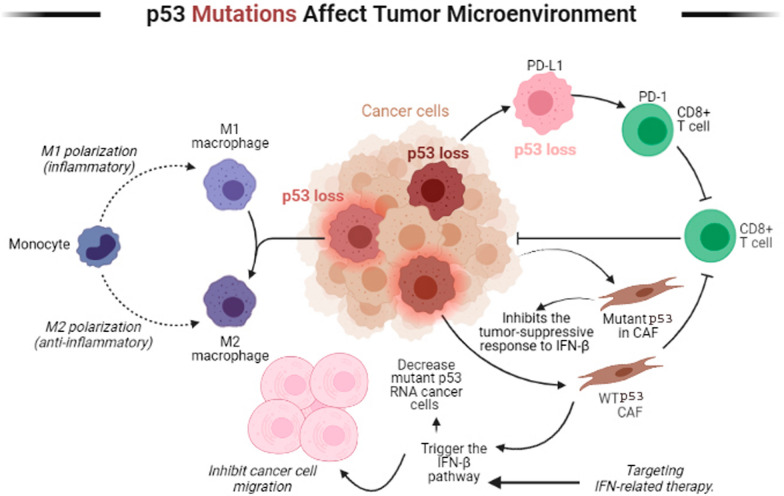Fig. 4.
Mutant p53-expressing tumors can reprogram M2-type macrophages (M2) and increase tumor invasion. High wild-type p53 activity acts as a brake on M1-like macrophage and, decreased M1-like gene expression. When cancer associated fibroblasts (CAFs) come into contact with cancer cells, their Interferon-β pathway is triggered and interacts with wild-type p53 in fibroblasts to inhibit cancer cell migration, decrease tumor development, and response to stress. In contrast, the function of CAFs is impaired in the presence of mutated p53, where they promote cancer cell proliferation. p53 transactivates programmed death-ligand 1 (PD-L1) and its receptor programmed death-1 (PD-1) in cancer cells and normal T cells in response to stress leading to suppression of CD8+ T cells

